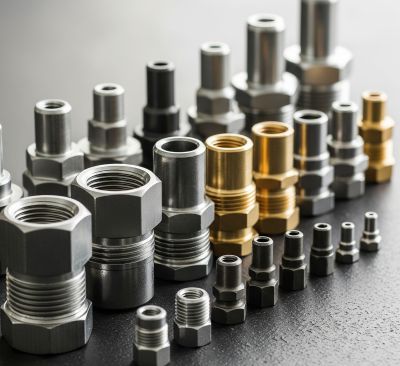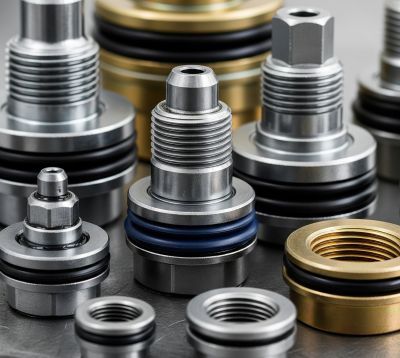When working with hydraulic, pneumatic, or other industrial systems, small components often play the biggest roles. One such example is the plug. Whether you’re sealing off unused ports, preventing leaks, or protecting a system from contamination, plugs are essential for maintaining efficiency and safety.
Choosing the right plug, bonded or standard, can make a big difference in leak prevention, durability, and long-term system performance.
In this article, you’ll learn what standard plugs and bonded plugs are, their differences, and how to decide which one is best suited for your application.
What Are Standard Plugs?
Standard plugs are the most common type of sealing plugs used across industries. They are designed to close off ports or openings in hydraulic, pneumatic, or industrial systems. They prevent fluid or gas leakage while ensuring safety and cleanliness.
Standard plugs are typically made of steel, brass, aluminum, or plastic, depending on the application and budget. They are widely used in low- to medium-pressure systems, temporary sealing jobs, and general-purpose industrial equipment.
Key features:
➡️ Simple sealing design
➡️ Cost-effective and easy to source
➡️ Versatile across industries
What Are Bonded Plugs?
Bonded plugs are an advanced alternative to standard plugs, specifically designed for high-performance sealing. Unlike standard plugs, bonded plugs integrate a plug body with a bonded seal, a combination of rubber and metal that provides a tight, leak-proof seal.
A metal plug body combined with an elastomeric seal ensures stronger sealing under pressure and vibration.
Key features:
➡️ Built-in bonded seal for enhanced leak prevention
➡️ Resistance to vibration and pressure fluctuations
➡️ Higher reliability compared to standard plugs
Bonded plugs are commonly used in hydraulic systems, high-pressure machinery, and critical applications where even minor leaks can cause major problems.
Key Differences Between Bonded Plugs and Standard Plugs
Sealing Performance
➡️ Standard plugs: Rely on a tight fit, thread engagement, and sometimes additional sealants (like PTFE tape or thread compounds).
➡️ Bonded plugs: Feature an integrated bonded seal that provides superior leak prevention without extra sealants.
Durability and Reliability
➡️ Standard plugs: Work well in stable, low-pressure conditions but may wear out faster under high vibration or temperature changes.
➡️ Bonded plugs: Maintain strong sealing performance even under pressure spikes, vibration, and fluctuating temperatures.
Installation and Maintenance
➡️ Standard plugs: Easy to install and remove, but may require sealants or tape for reliable sealing.
➡️ Bonded plugs: Typically simpler to install because the sealing element is built-in, reducing long-term maintenance needs.
Cost Comparison
➡️ Standard plugs: More affordable upfront and ideal for budget-sensitive projects.
➡️ Bonded plugs: Higher initial cost, but their durability and reliability can reduce long-term expenses caused by leaks or downtime.
Advantages of Bonded Plugs
1. Superior sealing against leaks
2. Reduced risk of costly system failures
3. Ideal for high-pressure hydraulic applications
4. Longer lifespan in harsh environments
Advantages of Standard Plugs
1. Budget-friendly option
2. Widely available in different materials and sizes
3. Suitable for low-pressure or non-critical applications
4. Simple design makes them easy to use
Which Plug Should You Choose?
The right choice depends on your specific needs:
1. Use bonded plugs if:
➡️ You’re working in high-pressure hydraulic or pneumatic systems
➡️ Vibration and pressure fluctuations are common
➡️ Leak prevention is critical to safety and performance
2. Use standard plugs if:
➡️ The system operates at low pressure
➡️ The application is non-critical
➡️ Cost savings are a priority
➡️ You need a temporary or general-purpose solution
Balancing cost and performance will help you make the best decision.
FAQs
Are bonded plugs reusable?
Yes, in most cases, bonded plugs can be reused, but only if the bonded seal remains intact and undamaged.
Can standard plugs handle hydraulic systems?
They can, but only in low-pressure, non-critical hydraulic applications. For high-pressure systems, bonded plugs are more reliable.
Do bonded plugs require additional sealing tape or compound?
No, the built-in bonded seal eliminates the need for extra sealants.
How do I know which plug size to choose?
Always refer to your system’s specifications and match the plug size with the port size to ensure proper fit and sealing.
Conclusion
Both bonded plugs and standard plugs serve important roles in hydraulic, pneumatic, and industrial systems.
➡️ Bonded plugs deliver superior leak protection, durability, and performance, making them the best choice for critical, high-pressure applications.
➡️ Standard plugs remain a cost-effective, practical solution for low-pressure or less demanding uses.
Choose bonded plugs for safety, efficiency, and long-term reliability in critical systems, and opt for standard plugs when simplicity and affordability are more important.
Post time: Aug-21-2025



